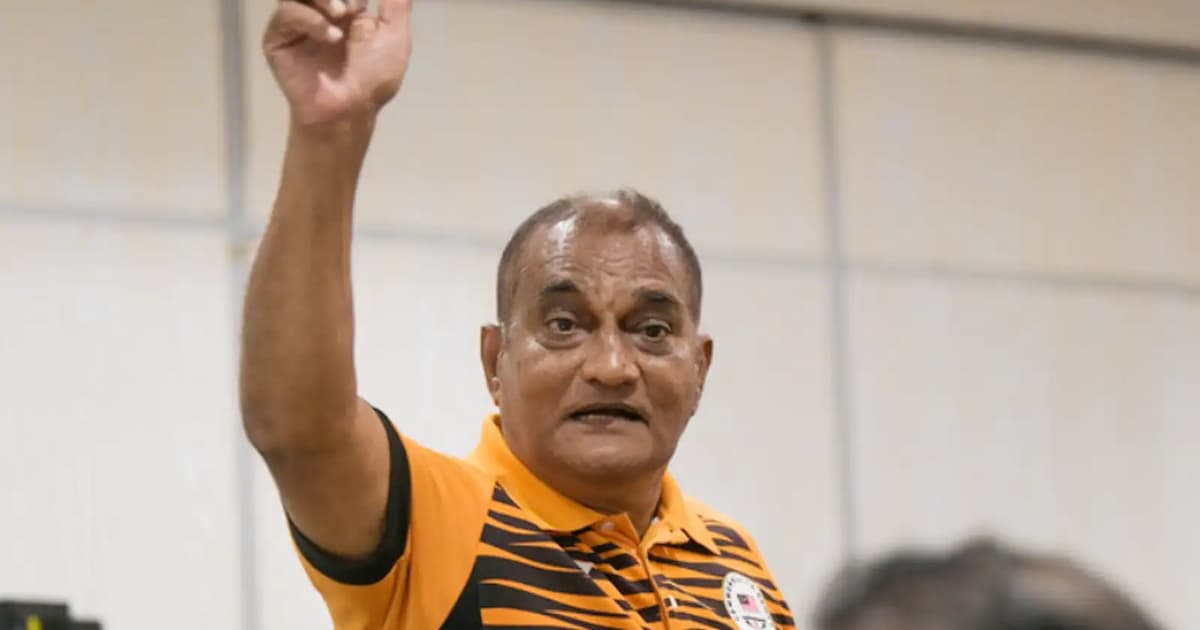
When a lifetime ban starts to mean five years, Malaysia’s rulebook has lost its backbone.
Karim Ibrahim didn’t just walk back into Malaysian athletics as the president — the system rolled out the red carpet.
The sports commissioner’s investigation into Malaysia Athletics (MA) isn’t just a procedural check. It’s a test of whether Malaysian sport still recognises what integrity looks like.
In sport, integrity, not victory, defines who stands on the podium. When the rules are rewritten, integrity becomes negotiable.
This isn’t about one man’s return. It’s about how easily Malaysian sport bends when power knocks.
A rule rewritten for one man
This week, FMT revealed the sports commissioner has opened a probe into MA after a complaint that a constitutional amendment cleared the way for Karim to reclaim power despite a global ban.
The complaint came from the Federal Territory Athletics Association (FTAA), which called the move “unconstitutional and self-serving.”
The rule in question, a new “five-year cap” on suspensions, changed the game entirely.
It meant even officials banned for life by an international body could run for office again after five years, as if integrity had an expiry date.
To anyone watching global sport, that clause doesn’t just sound wrong. It screams defiance.
It violated national sports regulations, ignored a binding Court of Arbitration for Sport (CAS) ruling, and breached World Athletics’ governance code.
It was Malaysia rewriting the rules of global sport on a local letterhead.
World Athletics has confirmed Karim’s suspension is permanent. No expiry. No review. No return.
CAS ruled in 2018 that Karim was guilty of misusing athlete allowances during a 2009 training camp and advising athletes to evade doping tests before the 2011 SEA Games.
The court described his actions as “unacceptable” and “wholly misleading,” barring him from any position under World Athletics.
That decision carried moral weight far beyond paperwork. It drew a line between authority and abuse, between leadership and betrayal of trust.
Yet that line was redrawn by MA.
The “five-year cap” amendment effectively neutralised the CAS ruling domestically. Karim returned to the presidency in June.
And here lies the hypocrisy: MA is a World Athletics member, enjoying funding, recognition, and legitimacy, yet rewrites the rules when accountability becomes inconvenient.
Integrity as a timeline
Globally, integrity in sport is a threshold: once crossed, it disqualifies.
In Malaysia, it appears to be a timeline, something to serve and forget.
The quiet rot of governance is the idea that time can cleanse wrongdoing without reform, that tenure can outlast accountability.
The FTAA was right to challenge the amendment. Its president, V Pulainthiran, cited Sports Commissioner’s Circular No. 2 of 2022, which forbids amendments that favour individuals or alter an organisation’s core purpose.
By any fair reading, MA’s rule change did both. This wasn’t a technical tweak. It was a calculated rewrite, a door left ajar for a specific person.
If this rule stands, every sports ban in Malaysia becomes negotiable.
Why this probe matters
The sports commissioner’s office is reviewing whether MA’s amendment was legally passed and whether it breaches governance principles.
Sports commissioner Ariffin Ghani met Pulainthiran yesterday to discuss the complaint and review the next steps in the investigation.
That review is not just administrative, it’s the last firewall between credibility and collapse.
If violations are confirmed, the commissioner can nullify the amendment or declare Karim’s presidency invalid.
But will the findings lead to reform, or end as another file in the cabinet of forgotten scandals?
Malaysia’s sports system remembers hierarchy well, but accountability poorly.
This isn’t a glitch. It’s the system’s default: bend, survive, move on.
A pattern beyond athletics
This controversy doesn’t stand alone. Banned or discredited officials quietly return through loopholes and sympathy votes.
Across Malaysian sport, governance frameworks are treated less like constitutions and more like suggestion sheets.
Committees are formed, reports promised, and eventually fatigue sets in. The public moves on. The powerful move back in.
It corrodes trust from within.
World Athletics’ rules are clear: any official declared ineligible must be removed or prevented from holding office.
Member federations must align their constitutions with global standards, not redefine them.
Flouting that responsibility invites more than embarrassment. It invites isolation.
World Athletics has suspended federations before for smaller breaches. It can do so again.
Athletes, the sport, and the nation’s reputation all pay the price.
The test before Malaysia
The investigation into MA will test more than paperwork. It will test whether Malaysian sport still applies rules to everyone, even the powerful.
It will test whether regulators are strong enough to confront their own, or whether they will shrink behind the old excuse of “autonomy.”
Autonomy was never meant to be impunity. Every time a federation bends rules to shield an insider, it chips away at the credibility of every clean official, every honest athlete, every volunteer who believes in merit.
Malaysia cannot preach integrity at the podium while tolerating wrongdoing in the boardroom.
If MA escapes with a warning or cosmetic correction, the damage goes far beyond one presidency.
It signals that rules are flexible, bans negotiable, and governance theatre.
It tells the public, again, that integrity is a slogan, not a standard.
Sport should be where character counts. Excusing misconduct in the name of “moving on” invites the next scandal before the last is resolved.
Accountability cannot be seasonal. It cannot expire after five years.
Senior officials must also answer
This isn’t only about Karim. Senior officials from MA’s affiliates have clung to their seats for decades.
They must be held accountable for electing the same people to the top offices and for staying silent when the five-year cap was proposed and passed, with the only objection coming from FTAA.
Why did they remain silent? Didn’t they realise the consequences? Now, they should consider relinquishing their state-level positions as well.
In the case of Karim, who also heads the Perak Athletics Association, why didn’t the state body move to eject him as president when World Athletics declared him ineligible in August 2018?
That failure reflects not just one man’s ambition, but systemic complicity.
What comes next
The sports commissioner’s next move will decide whether Malaysian sport has laws, or just loyalties.
It demands moral courage, not bureaucratic caution.
Malaysia rewriting the rules of global sport on a local letterhead is more than a scandal. It’s a wake-up call.
Integrity isn’t a punishment to outlast, it’s a standard to live by.
If we can rewrite bans, what’s next — rewriting history?
The views expressed are those of the writer and do not necessarily reflect those of FMT.






